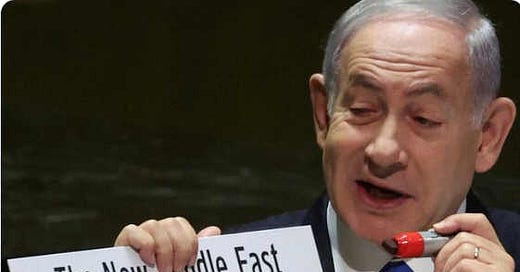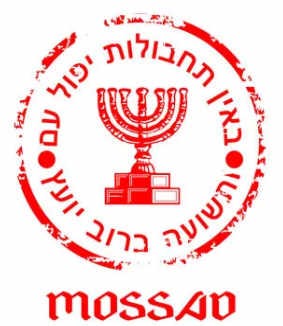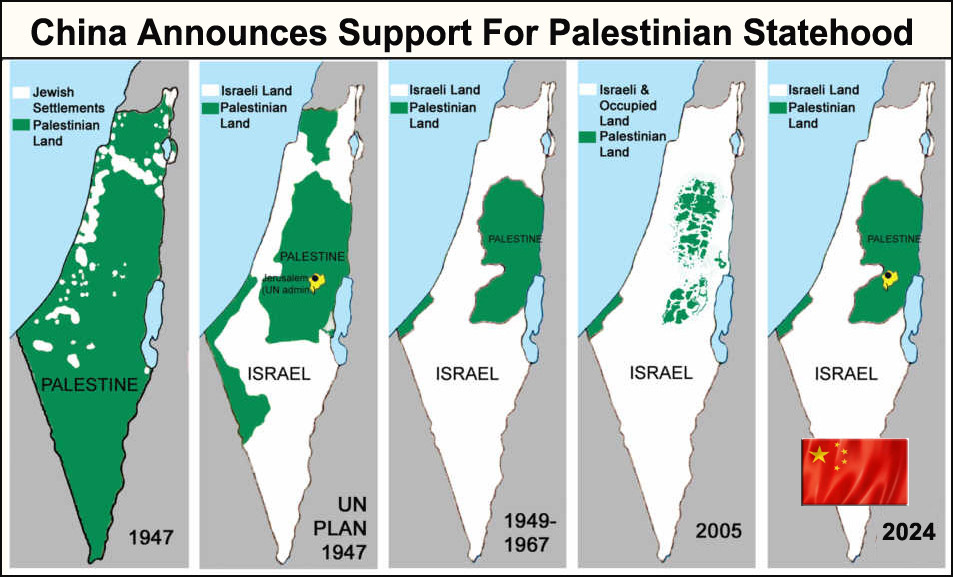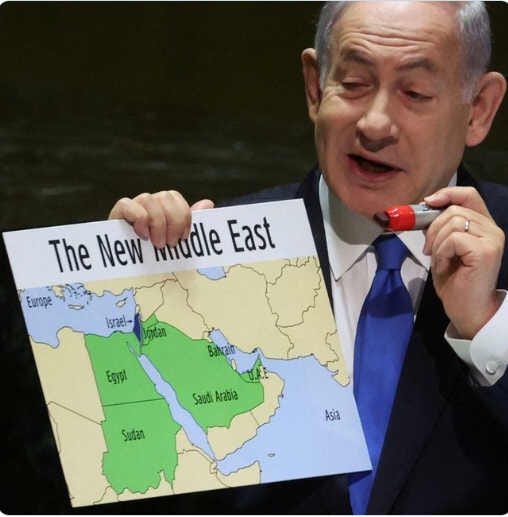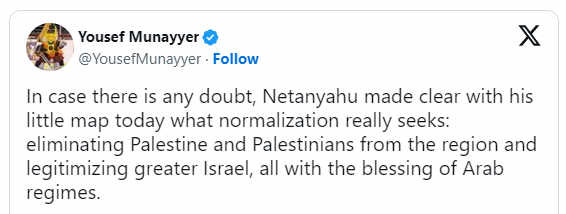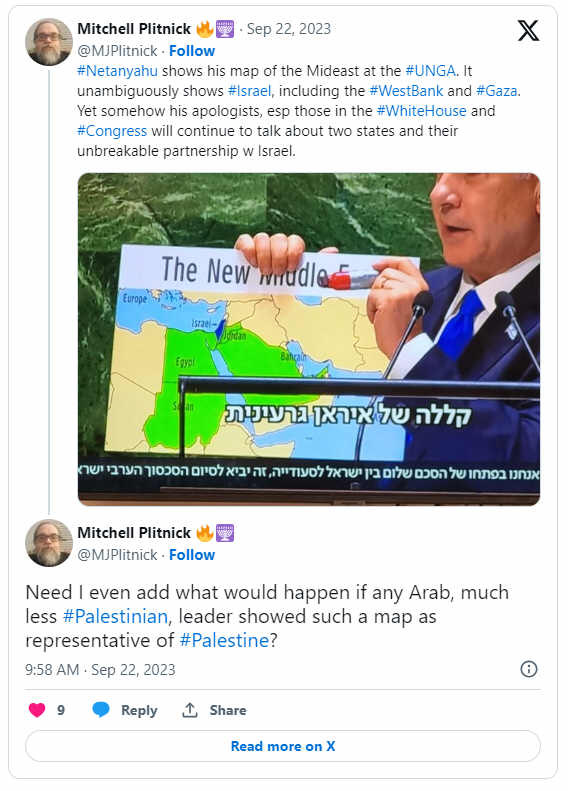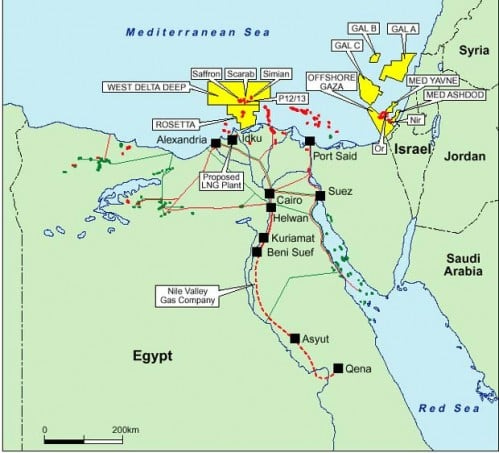$Trillions in GAZA Offshore Oil and Gas Reserves and "New Middle East" Agenda is Central to Israel's Virtual "9/11" Event With HAMAS.
The unbelievable MSM claim that Hezbollah (and presumably IRAN) approves of the GAZA attack on Israel is in serious question since Saudi Arabia and Iran normalized relations on March 10, 2023.
HAS HAMAS BEEN INFILTATED by MOSSAD?
How and why Israel helped create Hamas
Not many people are aware of the fact that it was Israel which had helped the creation of Hamas as a counter to PLO - Dr Moonis Ahmar May 30, 2021 (Source)
China Announces Support For Palestinian Statehood but Israel Now Seeks Normalization With Saudi Arabia in a “New Middle East” Denying Palestine Statehood in Aftermath of Purported HAMAS Terrorism.
At Stake for Israel are $Trillions in Oil and Gas Reserves offshore the GAZA Strip that Palestine Could Claim under official statehood.
The MSM claim that Hezbollah approves of the GAZA attack on Israel is in serious question since Saudi Arabia and Iran normalized relations on March 10, 2023.
Iran and Saudi Arabia Restore Ties (LINK)
On March 10, Iran and Saudi Arabia agreed to restore diplomatic ties seven years after severing relations.
The regional rivals committed to reopening embassies in Tehran and Riyadh by May 2023.
The deal, brokered by China, also included the implementation of a security cooperation agreement signed in 2001 and a 1998 pact to enhance cooperation on trade, investment, technology, and culture.
REUTERS: Iran's UN mission says Tehran not involved in Hamas attacks HERE
"We emphatically stand in unflinching support of Palestine; however, we are not involved in Palestine's response, as it is taken solely by Palestine itself," Iran's U.N. mission said.
“War and Natural Gas: The Israeli Invasion and Gaza’s Offshore Gas Fields” (Link)
Flash Back: Operation Cast Lead (2008-2009)
Gaza belongs to Palestine. In December 2008, Israeli forces invaded the Gaza Strip under Operation Cast Lead. The justification for this invasion was “persistent terrorist activities and a constant missile threat from the Gaza Strip directed at Israeli civilians.”
What was the hidden agenda?
The purpose of Operation Cast Led was to confiscate Palestine’s maritime natural gas reserves.
Does anyone really think Israel would agree to restore Israeli borders to 1967 under China’s insistence ?
NEED to KNOW: China is backing Palestinian statehood in a 2-state solution with Israel, based on the 1967 borders with East Jerusalem as its capitol. Israel rejected the plan to restore the 1967 border. At a recent meeting, between Chinese President Xi Jinping and Palestinian Authority President Mahmoud Abbas, Xi reiterated Chinese support for the Palestinian Authority becoming a full member of the United Nations, but the United States opposes full Palestinian UN membership barring a peace deal with Israel. China aims to be the mediator in the conflict as peace negotiations have been stalled since 2014.
Saudi Arabia said that normalization with Israel can only happen if the Palestinians get their own state.
Palestinians’ internal divisions have posed another obstacle to peacemaking as the Islamist Hamas movement that rules Gaza is sworn to Israel’s destruction. (More)
TIMES OF ISREAL: Full Video and text of Netanyahu’s UN address: ‘On the cusp of historic Saudi-Israel peace’
The PM predicts the potential blessing of ‘a new Middle East,’ says ‘fanatics’ leading Iran will try to stop it, urges Palestinians to ‘finally embrace’ the Jewish state.
Netanyahu Shows Map of ‘New Middle East’ – Without Palestine – to UN General Assembly
"Netanyahu made clear with his little map today what normalization really seeks: eliminating Palestine... from the region and legitimizing greater Israel, all with the blessing of Arab regimes," one critic said.
by Brett Wilkins Posted on September 25, 2023
Israeli Prime Minister Benjamin Netanyahu angered Palestinians and their defenders Friday after presenting a map of “The New Middle East” without Palestine during his speech to the United Nations General Assembly in New York.
Speaking to a largely empty chamber, Netanyahu – whose far-right government is widely considered the most extreme in Israeli history – showed a series of maps, including one that did not show the West Bank, East Jerusalem, or Gaza. These Palestinian territories have been illegally occupied by Israel since 1967, with the exception of Gaza – from which Israeli forces withdrew in 2005, while maintaining an economic stranglehold over the densely populated coastal strip.
Middle East Eye reported Netanyahu also held up a map of “Israel in 1948” – the year the modern Jewish state was established, largely through the ethnic cleansing of more than 750,000 Arabs – that erroneously included the Palestinian territories as part of Israel.
Palestinian Ambassador to Germany Laith Arafeh said on social media that there is “no greater insult to every foundational principle of the United Nations than seeing Netanyahu display before the UNGA a ‘map of Israel’ that straddles the entire land from the river to the sea, negating Palestine and its people, then attempting to spin the audience with rhetoric about ‘peace’ in the region, all the while entrenching the longest ongoing belligerent occupation in today’s world.”
Link": https://x.com/YousefMunayyer/status/1705270298721821003?s=20
As Middle East Eye noted:
The inclusion of Palestinian lands (and sometimes land belonging to Syria and Lebanon) in Israeli maps is common among believers of the concept of Eretz Yisrael – Greater Israel – a key part of ultra-nationalist Zionism that claims all of these lands belong to a Zionist state.
Earlier this year, Netanyahu’s finance minister, Bezalel Smotrich, spoke from a podium adorned with a map that also included Palestine, Lebanon, and Syria as part of Greater Israel. In the same event, he said there was “no such thing as Palestinians.”
The use of such maps by Israeli officials comes at a time when Netanyahu’s ultra-nationalist government has taken steps that experts say amount to the “de jure annexation” of the occupied West Bank.
Netanyahu used the maps in an attempt to illustrate the increasing number of Arab countries normalizing relations with Israel under the Abraham Accords brokered by the administration of former U.S. President Donald Trump.
“There’s no question the Abraham Accords heralded the dawn of a new age of peace,” the Israeli prime minister said. “But I believe that we are at the cusp of an even more dramatic breakthrough, an historic peace between Israel and Saudi Arabia. Peace between Israel and Saudi Arabia will truly create a new Middle East.”
Follow on Twitter - https://twitter.com/MJPlitnick
Critics have countered that peace between apartheid Israel and Arab dictatorships has come at the cost of advancing Palestinian rights. In the case of Morocco, the United States recognized the North African nation’s illegal annexation and brutal occupation of Western Sahara in exchange for normalization with Israel.
Netanyahu’s props on Friday reminded numerous observers of the time during his 2012 General Assembly speech when he used a cartoon drawing of a bomb to illustrate Iran’s progress on advancing a nuclear weapons program that both U.S. and Israeli intelligence agencies said did not exist.
Brett Wilkins is is staff writer for Common Dreams. Based in San Francisco, his work covers issues of social justice, human rights and war and peace. This originally appeared at CommonDreams and is reprinted with the author’s permission.
War and Natural Gas:
The Israeli Invasion and Gaza’s Offshore Gas Fields
by Michel Chossudovsky
January 8, 2009
The December 2008 military invasion of the Gaza Strip by Israeli Forces bears a direct relation to the control and ownership of strategic offshore gas reserves.
This is a war of conquest. Discovered in 2000, there are extensive gas reserves off the Gaza coastline.
British Gas (BG Group) and its partner, the Athens based Consolidated Contractors International Company (CCC) owned by Lebanon’s Sabbagh and Koury families, were granted oil and gas exploration rights in a 25 year agreement signed in November 1999 with the Palestinian Authority.
The rights to the offshore gas field are respectively British Gas (60 percent); Consolidated Contractors (CCC) (30 percent); and the Investment Fund of the Palestinian Authority (10 percent). (Haaretz, October 21, 2007).
The PA-BG-CCC agreement includes field development and the construction of a gas pipeline.(Middle East Economic Digest, Jan 5, 2001).
The BG licence covers the entire Gazan offshore marine area, which is contiguous to several Israeli offshore gas facilities. (See Map below). It should be noted that 60 percent of the gas reserves along the Gaza-Israel coastline belong to Palestine.
The BG Group drilled two wells in 2000: Gaza Marine-1 and Gaza Marine-2. Reserves are estimated by British Gas to be of the order of 1.4 trillion cubic feet, valued at approximately 4 billion dollars. These are the figures made public by British Gas. The size of Palestine’s gas reserves could be much larger.
Map 1
Map 2
Who Owns the Gas Fields
The issue of sovereignty over Gaza’s gas fields is crucial. From a legal standpoint, the gas reserves belong to Palestine.
The death of Yasser Arafat, the election of the Hamas government and the ruin of the Palestinian Authority have enabled Israel to establish de facto control over Gaza’s offshore gas reserves.
British Gas (BG Group) has been dealing with the Tel Aviv government. In turn, the Hamas government has been bypassed in regards to exploration and development rights over the gas fields.
The election of Prime Minister Ariel Sharon in 2001 was a major turning point. Palestine’s sovereignty over the offshore gas fields was challenged in the Israeli Supreme Court. Sharon stated unequivocally that “Israel would never buy gas from Palestine” intimating that Gaza’s offshore gas reserves belong to Israel.
In 2003, Ariel Sharon, vetoed an initial deal, which would allow British Gas to supply Israel with natural gas from Gaza’s offshore wells. (The Independent, August 19, 2003)
The election victory of Hamas in 2006 was conducive to the demise of the Palestinian Authority, which became confined to the West Bank, under the proxy regime of Mahmoud Abbas.
In 2006, British Gas “was close to signing a deal to pump the gas to Egypt.” (Times, May, 23, 2007). According to reports, British Prime Minister Tony Blair intervened on behalf of Israel with a view to shunting the agreement with Egypt.
The following year, in May 2007, the Israeli Cabinet approved a proposal by Prime Minister Ehud Olmert “to buy gas from the Palestinian Authority.” The proposed contract was for $4 billion, with profits of the order of $2 billion of which one billion was to go the Palestinians.
Tel Aviv, however, had no intention on sharing the revenues with Palestine. An Israeli team of negotiators was set up by the Israeli Cabinet to thrash out a deal with the BG Group, bypassing both the Hamas government and the Palestinian Authority:
“Israeli defence authorities want the Palestinians to be paid in goods and services and insist that no money go to the Hamas-controlled Government.” (Ibid, emphasis added)
The objective was essentially to nullify the contract signed in 1999 between the BG Group and the Palestinian Authority under Yasser Arafat.
Under the proposed 2007 agreement with BG, Palestinian gas from Gaza’s offshore wells was to be channeled by an undersea pipeline to the Israeli seaport of Ashkelon, thereby transferring control over the sale of the natural gas to Israel.
The deal fell through. The negotiations were suspended:
“Mossad Chief Meir Dagan opposed the transaction on security grounds, that the proceeds would fund terror”. (Member of Knesset Gilad Erdan, Address to the Knesset on “The Intention of Deputy Prime Minister Ehud Olmert to Purchase Gas from the Palestinians When Payment Will Serve Hamas,” March 1, 2006, quoted in Lt. Gen. (ret.) Moshe Yaalon, Does the Prospective Purchase of British Gas from Gaza’s Coastal Waters Threaten Israel’s National Security? Jerusalem Center for Public Affairs, October 2007)
Israel’s intent was to foreclose the possibility that royalties be paid to the Palestinians. In December 2007, The BG Group withdrew from the negotiations with Israel and in January 2008 they closed their office in Israel.(BG website).
Invasion Plan on The Drawing Board
The invasion plan of the Gaza Strip under “Operation Cast Lead” was set in motion in June 2008, according to Israeli military sources:
“Sources in the defense establishment said Defense Minister Ehud Barak instructed the Israel Defense Forces to prepare for the operation over six months ago [June or before June] , even as Israel was beginning to negotiate a ceasefire agreement with Hamas.”(Barak Ravid, Operation “Cast Lead”: Israeli Air Force strike followed months of planning, Haaretz, December 27, 2008)
That very same month, the Israeli authorities contacted British Gas, with a view to resuming crucial negotiations pertaining to the purchase of Gaza’s natural gas:
“Both Ministry of Finance director general Yarom Ariav and Ministry of National Infrastructures director general Hezi Kugler agreed to inform BG of Israel’s wish to renew the talks.
The sources added that BG has not yet officially responded to Israel’s request, but that company executives would probably come to Israel in a few weeks to hold talks with government officials.” (Globes online- Israel’s Business Arena, June 23, 2008)
The decision to speed up negotiations with British Gas (BG Group) coincided, chronologically, with the planning of the invasion of Gaza initiated in June. It would appear that Israel was anxious to reach an agreement with the BG Group prior to the invasion, which was already in an advanced planning stage.
Moreover, these negotiations with British Gas were conducted by the Ehud Olmert government with the knowledge that a military invasion was on the drawing board. In all likelihood, a new “post war” political-territorial arrangement for the Gaza strip was also being contemplated by the Israeli government.
In fact, negotiations between British Gas and Israeli officials were ongoing in October 2008, 2-3 months prior to the commencement of the bombings on December 27th.
In November 2008, the Israeli Ministry of Finance and the Ministry of National Infrastructures instructed Israel Electric Corporation (IEC) to enter into negotiations with British Gas, on the purchase of natural gas from the BG’s offshore concession in Gaza. (Globes, November 13, 2008)
“Ministry of Finance director general Yarom Ariav and Ministry of National Infrastructures director general Hezi Kugler wrote to IEC CEO Amos Lasker recently, informing him of the government’s decision to allow negotiations to go forward, in line with the framework proposal it approved earlier this year.
The IEC board, headed by chairman Moti Friedman, approved the principles of the framework proposal a few weeks ago. The talks with BG Group will begin once the board approves the exemption from a tender.” (Globes Nov. 13, 2008)
Gaza and Energy Geopolitics
The military occupation of Gaza is intent upon transferring the sovereignty of the gas fields to Israel in violation of international law.
What can we expect in the wake of the invasion?
What is the intent of Israel with regard to Palestine’s Natural Gas reserves?
A new territorial arrangement, with the stationing of Israeli and/or “peacekeeping” troops?
The militarization of the entire Gaza coastline, which is strategic for Israel?
The outright confiscation of Palestinian gas fields and the unilateral declaration of Israeli sovereignty over Gaza’s maritime areas?
If this were to occur, the Gaza gas fields would be integrated into Israel’s offshore installations, which are contiguous to those of the Gaza Strip. (See Map 1 above)
These various offshore installations are also linked up to Israel’s energy transport corridor, extending from the port of Eilat, which is an oil pipeline terminal, on the Red Sea to the seaport – pipeline terminal at Ashkelon, and northwards to Haifa, and eventually linking up through a proposed Israeli-Turkish pipeline with the Turkish port of Ceyhan.
Map 3
Ceyhan is the terminal of the Baku, Tblisi Ceyhan Trans Caspian pipeline.
“What is envisaged is to link the BTC pipeline to the Trans-Israel Eilat-Ashkelon pipeline, also known as Israel’s Tipline.” (See Michel Chossudovsky, The War on Lebanon and the Battle for Oil, Global Research, July 23, 2006)


